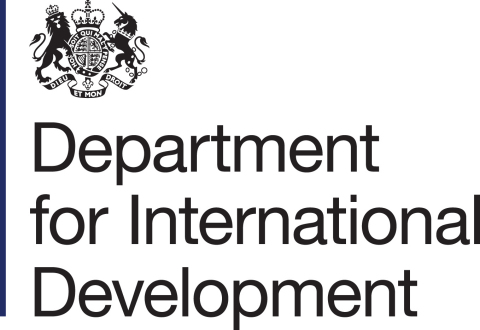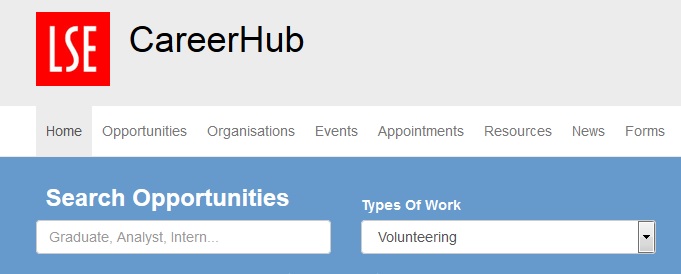This blog summaries the insights shared at an LSE Careers panel event, which focused on getting into international development as an undergraduate.
1. Understand the unstructured nature of recruitment/progression in this sector
There are very few graduate schemes in this sector (some of the organisations that do have schemes are mentioned below). Short term contracts are common and many people will enter the sector after working in another area first or volunteering. Once working in the sector do not expect a linear career progression as there is not usually a structured hierarchy.
2. Research the various sub-sectors within international development
Some sub-sectors will be easier to get into as an undergraduate than others. For example:
International NGOs
This is the biggest sub-sector and many graduates will start their careers here. Examples of NGOs include War Child, Save the Children, Oxfam, British Red Cross and Amnesty. The well-known, larger NGOs can receive huge numbers of applications. For instance, an entry-level Policy Officer role advertised on Guardian jobs might attract in excess of 800 applicants! Therefore it is important to consider smaller NGOs to increase your chances. Recruiters in the international development sector are not generally looking for big names on your CV so it is possible to move into larger NGOs if you begin your career in a small NGO. London is a great place to start your career with hundreds of small NGOs based here.
Government and international organisations
The Department for International Development (DFID) has previously run a graduate scheme however their recruitment patterns seem to be changing so keen a close eye on the Civil Service Fast Stream and DFID webpages. In previous recruitment rounds, there are approximately 50 vacancies each year and they usually advertise from January to March. Citizens of the UK, an EU country, Turkey, Switzerland or a Commonwealth country are eligible. There may be an equivalent programme in your home country, so it would be worth checking.

International organisations and development banks usually have structured young professional programmes however these often require a master’s plus several years’ experience. It’s very unusual for an undergraduate to go straight into an international organisation. Most will work in an NGO first. Since DFID and other international organisations will work closely with NGOs to deliver aid work and manage and fund programmes this will provide excellent experience.
Internships are common in international organisations. Unfortunately many are unpaid with the exception of the UN World Food Programme whose headquarters are in Rome.
Private sector
This has been a growing area in international development over the last 10 years. Traditional consultancies such as McKinsey etc. often take on international development projects. Specialist development consultancies such as Adam Smith and Coffey have a growing presence. They occasionally have entry-level roles suitable for undergraduates and some such as Coffey have graduate schemes. DFID will often hire a consultancy to run various projects and do the field work.
Social enterprises also form part of the private sector. They are small organisations designed with a social purpose in mind any profit they make is reinvested and are often flexible about the work you can get involved in due to their small size. Escape the city is one website where you can find organisations recruiting for these roles. Private foundations also sit within this sub-sector eg. the Clinton foundation, Gates foundation etc. These are philanthropic organisations which donate bursaries and fund various development projects.
Think tanks and academia
This is a very small sector and entry is usually with a master’s. They are involved in research and policy work but you can also find events and fundraising roles too (or these may be part of your research role). Overall there’s lots of movement between sectors so don’t worry if you don’t start off in your dream job! For example, if you start work in an international NGO doing field work/relief operations you’ll find it is a very small community so you will get to know the UN staff. Because short term contracts are common you will also expand your network quickly and hopefully, this will result in a permanent role! It’s also common for those in development consultancy to move to DFID or think tanks such as ODI.
3. Research the types of roles
As well as being a range of sub-sectors there is a range of roles in international development and these may vary in terms of entry requirements. Roles may include:
Professional support
Like any other organisation, international development organisations will need staff in support functions such as HR, finance and marketing. A master’s is not usually required for these types of roles.
Fundraising
A master’s is not typically required for this role. This can provide an interesting entry point and involves much more than shaking a bucket on Oxford Street! Most people will be involved in institutional fundraising and liaising with external organisations such as the World Bank, DFID etc. and getting funding from these organisations. They may also be involved in building and maintaining donor relations.
Technical specialist
There are a variety of specialist roles that are essential to the sector. This includes nutritionists, engineers, doctors and public health experts. To enter a specialist role you would require a relevant undergraduate or postgraduate qualification.
Policy and research
Policy makers and researchers will formulate a strategic response for how their organisation works with external organisations. For example, a current important issue policy officers may be grappling with is how they will engage with the UN sustainable development goals. Most working in this role will have a masters in development management or similar. They may develop particular policy area specialisms eg. gender.
Programmes
This is a project management role. For example, Oxfam may bid for DFID funding to work on a programme in a developing country to help marginalised women. When they have won the bid they’ll have to plan how to spend the budget, monitor how this is spent and report back to DFID the key outcomes of the project. For this role you don’t necessarily need a master’s but many entrants will have one.
Advocacy and campaigns
This role involves trying to influence the government on various policies. The policy team will formulate a response and then advocacy will take this forward.
4. Get experience
If for the role and/or sub-sector you wish to enter you are likely to need a master’s then consider gaining some experience first. This will put you in a stronger position when job searching after your master’s and you are also likely to get more out of your studies as you will have seen the issues for yourself and can then put these into a theoretical context.
Volunteer overseas
There are many organisations that can help you organise overseas volunteering in advance such as:
Other students decide to arrange overseas volunteering directly for example by obtaining a list of NGOs in the country of interest and contacting them directly. This can be riskier and it is important to follow the advice on the FCO website to avoid putting yourself in unnecessary danger.
Our Volunteer Centre can advise you on volunteering abroad and have guidance on the website about choosing a project.
Volunteer in London
London has a huge number of NGOs based in the city so along with New York is one of the best cities in the world to get experience in this sector. You can volunteer during term-time or in the holidays; find opportunities on CareerHub (the LSE Volunteer Centre post opportunities regularly)!

Temporary work
Doing some temporary work in an administrative role or similar entry-level position can give you a way into the sector and valuable experience. About a year doing this sort of work should be sufficient.
Start in the private sector and then move into development
Many people make the move into international development after starting in the private sector. This will be an easier move to make if you experience is transferable. For example you may train as an accountant or HR specialist and take this skill into development or perhaps you develop expertise in homelessness by working on housing policy for local government. Project management skills are also valued by programmes teams in NGOs.
Network
Explore the reality of the sector by talking to people who already work in the sector. Use the LSE alumni network to get an honest view and attend Discover ID events to help develop your network.






